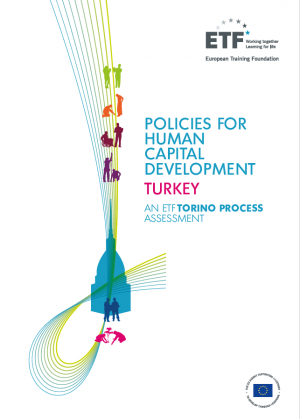The European Training Foundation (ETF) assessment process provides an external, forward-looking analysis of countries' human capital development issues and VET policy responses from a lifelong learning perspective. It identifies challenges related to education and training policy and practice that hinder the development and use of human capital, taking stock of them and making recommendations for possible solutions.
Such assessments are a key deliverable of the Torino Process, an initiative launched by the ETF in 2010 and aimed at providing a periodic review of vocational education and training (VET) systems in the wider context of human capital development and inclusive economic growth. In providing a high-quality evaluation of VET policy from a lifelong learning perspective, the assessment process builds on four key principles: ownership, participation, and holistic and evidence-based analysis.
For the ETF, human capital development means supporting countries in the creation of lifelong learning systems that provide opportunities and incentives for people to develop their skills, competences, knowledge and attitudes throughout their lives, with a view to improving their employment prospects and realising their potential, as well as contributing to prosperous, innovative and inclusive societies.
The main purpose of these assessments is to provide a reliable source of information to enable the planning and monitoring of national education and training policies with respect to human capital development, as well as offering a foundation for programming and policy dialogue in support of these policies by the European Union and other donors.
The ETF assessments rely on evidence collected by the respective countries using a standardised reporting template (the National Reporting Framework – NRF) within a participatory process involving a wide variety of actors with a high degree of ownership. The findings and recommendations of the ETF assessments have been shared and discussed with national authorities and beneficiaries. However, the ETF takes full responsibility for each assessment and for any errors and omissions contained therein.
This assessment report starts with a brief description of the strategic plans and national policy priorities of Turkey (Chapter 1). It then presents an overview of issues related to the development and use of human capital in the country (Chapter 2), before moving on to provide an in-depth discussion of the problems in this area that, in the view of the ETF, require immediate attention (Chapter 3). Chapter 4 offers overall conclusions resulting from the analysis.
The annexes provide additional information: a summary of the recommendations in the report (Annex 1) and an overview of the education and training system of Turkey (Annex 2). The National Torino Process Report compiled by the country itself can be found here: https://openspace.etf.europa.eu/trp/torino-process-2018-2020-turkey-nat…
